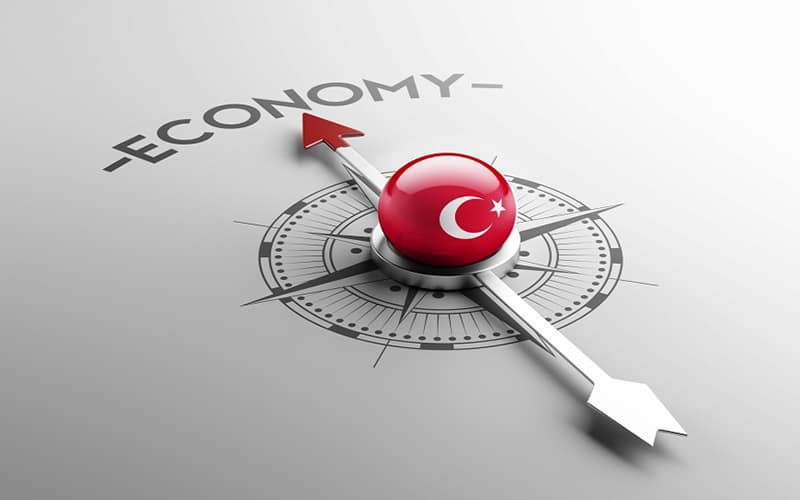With confidence indices rising since the second part of the year, real sector and household estimates for 12-month-ahead inflation falling, and optimistic predictions for the economy’s future rising, the Turkish economy seems to be headed in the right direction.
After hitting the 100-point mark in March, the economic confidence index declined in the months that followed, to 93.1 in August before rising to a five-month high of 98 in October. After falling to its lowest point of 75.9 in July, the consumer confidence index began to increase. In the months that followed, it steadily increased, peaking at 80.6 in October—its highest level in 16 months.
In August, the real sector confidence index fell to 98 from the start of the year at 102.9. In October, the index increased once more to 102.2, reaching its highest level in five months. Throughout the year, the services confidence index varied, peaking at 114.2 in October, a four-month high.
Expectations for inflation are declining
In October 2023, the Turkish central bank’s 12-month-ahead annual inflation predictions peaked at 45.28%, which has since fallen to 27.44% in October of this year. The real sector’s annual inflation projections fluctuated before declining, peaking at 70.1% in November 2022. In October, the rate fell to 49.5%, its lowest level in 15 months.
Households’ 12-month-ahead annual inflation forecasts, which peaked in August 2023 at 88.27% and then fluctuated and fell to 68.23% in October—the lowest level in two and a half years—were greater than those of the other two sectors.
Enhancements to hasten the decrease in inflation
The three sectors’ inflation estimates for the upcoming year have essentially decreased since August 2023, according to Sefer Şener, an economics professor at Istanbul University, who spoke to Anadolu Agency (AA). He attributed the downward acceleration in inflation estimates to the economic administration’s return to sensible policies.
“Inflation has benefited from the recent upward trend in key macroeconomic indicators, including the current account deficit, budget balance, and unemployment rate. The combination of these indicators and the rise in the Central Bank of the Republic of Turkey’s (CBRT) reserves suggests that inflation is declining steadily,” he said.
“Despite the setbacks, the fight against inflation has been successful, as evidenced by the rise in both portfolio and foreign direct investments (FDIs), the reduction in the country’s risk premium, the upgrades to its credit rating, and its removal from the Financial Action Task Force (FATF) Gray List,” he said.
Estimates are declining
Estimates are still high even though inflation dropped to 49.38% on an annual basis as of September, he continued. “Estimations have been declining since August of last year, and as estimates decline, so will inflation – if the determination of monetary policy and macroeconomic policies are maintained, the decline in inflation will accelerate further,” he said.
According to Şener, inflation and inflation estimates will decline as long as the pressure from exchange rates is reduced and excessive price increases are addressed more skillfully.
He emphasized that the economic confidence index for Turkey kept rising in October, which added to the widespread optimism that the country’s economy will have a prosperous future. In addition, he noted that other confidence indexes have remained above their cutoff points, indicating that many industries are hopeful about the future.
He went on to say that despite challenges, the rise in expectations for the overall state of the economy over the next 12 months indicates that consumer expectations will be favorable in 2019.
Source: Daily Sabah
For more information on Turkish property please click the link.





